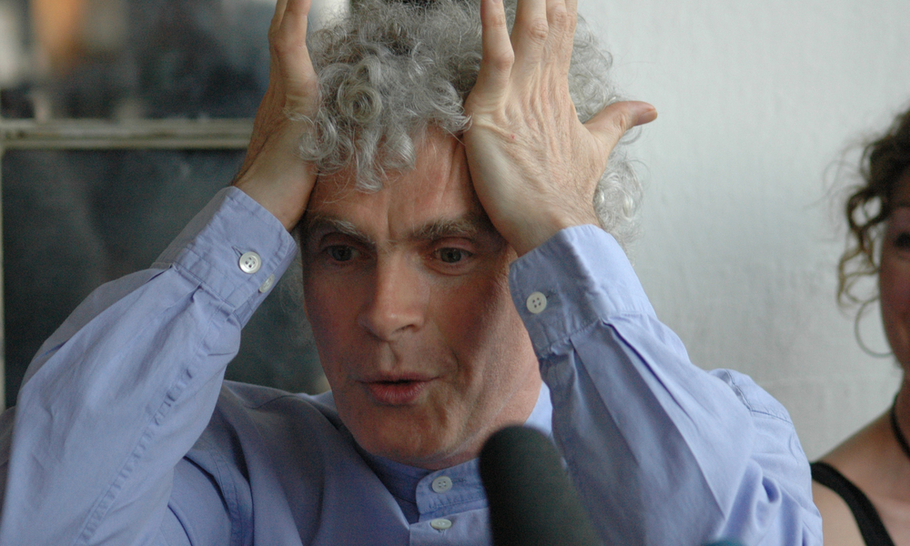At the Proms, the Russians are back

Simon Rattle (Shutterstock)
“No more Tchaikovsky symphonies!” cried Simon Rattle when he first came to the Proms in the 1970s. Well, although the occasional burst of the likes of Messiaen or Lutosławski does occur in the Albert Hall from time to time, it’s still the sweeping narratives of the Romantic symphonies that still take pride of place every summer. And they fill the seats, too: Rachmaninov, Elgar and Tchaikovsky have recently packed out the Hall more than I’ve ever seen. Rattle’s two final British concerts this summer are also sold out: and he goes out with the hyper-Romantic Mahler that he has championed ever since he made such a stunning entrance onto the classical scene some fifty years ago.
The challenge of giving new life to these seat-fillers does not seem to have troubled Ryan Bancroft and the BBC National Orchestra of Wales on Tuesday August 1st, in the second of their consecutive Proms. Tchaikovsky’s Fifth Symphony occupies a middle spot between the startling force and melodic power of the Fourth and the supremely well-crafted power of the Sixth. The “fate motif” which pervades each movement was given its due by Bancoft and his clarinettists at the beginning, with a full appreciation of the sense of space between each of the notes in the melody and Tchaikovsky’s deceptively simple chords. The second theme and next section of the movement had a briskness not often heard, which challenged the definition of the strings and some of the ensemble between sections. Bancroft made as much as possible of the high points of Tchaikovsky’s impassioned climaxes, though with some sudden dynamic changes which, if we rely on the score, do not seem to have occurred to the composer himself.
Nevertheless it was an invigorating performance, with the full of each section of the orchestra well employed in creating the sudden contrasts which lend Tchaikovsky’s music its unique emotional landscape. Yet we should always be wary of writing him off as a less technically disciplined Brahms: no one who hears the intricate wind counterpoint in the wonderful second movement will be able to maintain their claim to Tchaikvosky’s alleged ill-discipline. The lower strings of the Welsh orchestra here were in fine form, giving a touch of Karajan-esque vibrato to the solemn chords which open the second movement, and the wind countermelodies were played with requisite verve throughout. The return of the fate motif to interrupt the “love scene” of the second movement was given full force by an excellent brass section.
Tchaikovsky’s fourth movement often seems unduly joyous after the doubts and contrasts of the first two. The theme returns in the major key, with an extended coda giving a quandary to most conductors, similar to that of the infamously buoyant finale to Shostakovich’s Fifth. Although the music portrays an outward joy, it’s not too difficult to read a certain degree of irony into this music, something which becomes ever more present in the larger canvases and extra-musical baggage of Mahler. Whereas his contemporary Bruckner often ends with a premeditated sense of affirmation, Tchaikovsky’s greatest conclusion seems to be the completely tragic one of the Sixth, rather than the faint praise of the finales to the Fourth and Fifth. Nevertheless, the Fifth was given a good enough amount of force to allow for a flicker of irony to come through.
The Tchaikovsky was preceded by Isata Kanneh-Mason’s spirited rendition of Prokofiev’s Third Piano Concerto to complete an evening of Russian music. After the widespread “cancelling” of Russian composers in the wake of the invasion of Ukraine last year, it is good to see no hint of such censorship at the Proms. The Prokofiev Concerto was carried off with all the stunning virtuosity required by its showy score, though I am still quite lost on what some seem to find in his music. A brash and bombastic insight into the mind of a 1920s Russian modernist, perhaps. But the evening belonged to a lively, energetically conducted and still-so-alive rendition of one of the classical concert hall’s great musical narratives.
A Message from TheArticle
We are the only publication that’s committed to covering every angle. We have an important contribution to make, one that’s needed now more than ever, and we need your help to continue publishing throughout these hard economic times. So please, make a donation.




